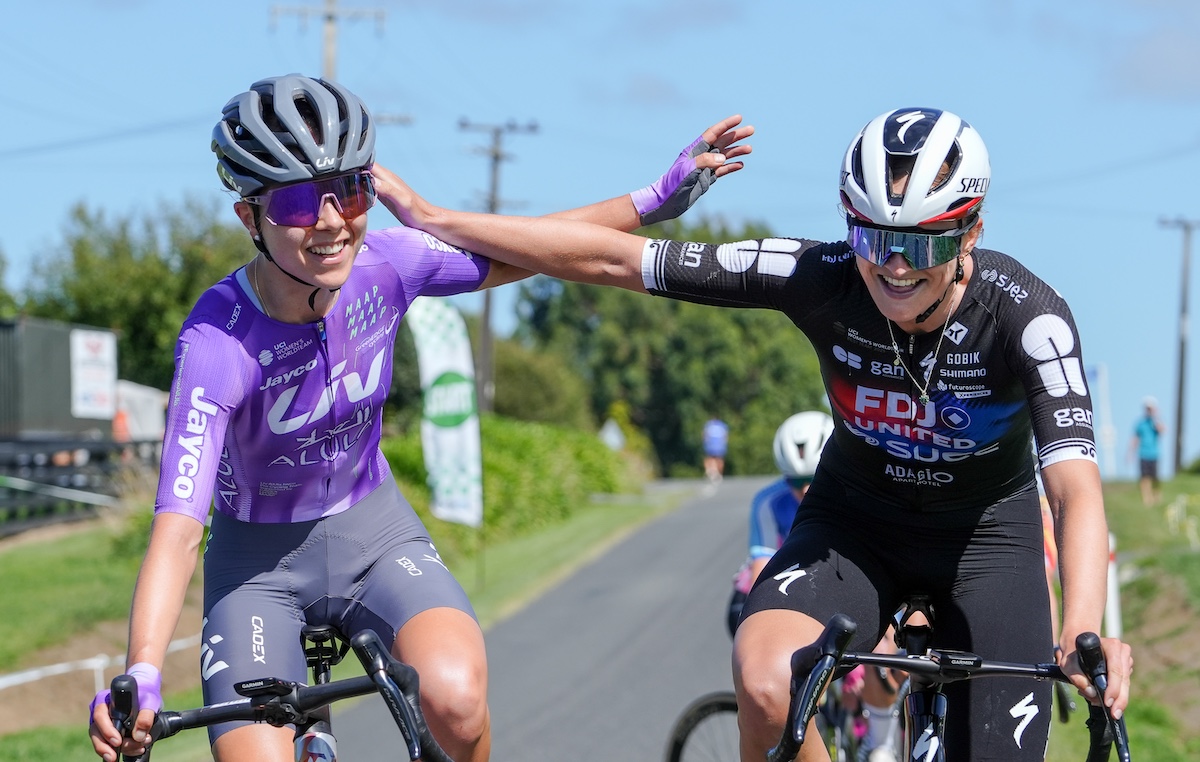Todd Wells, king of American off-road racing
Triple US national champion gears up for mountain bike season
The latest race content, interviews, features, reviews and expert buying guides, direct to your inbox!
You are now subscribed
Your newsletter sign-up was successful
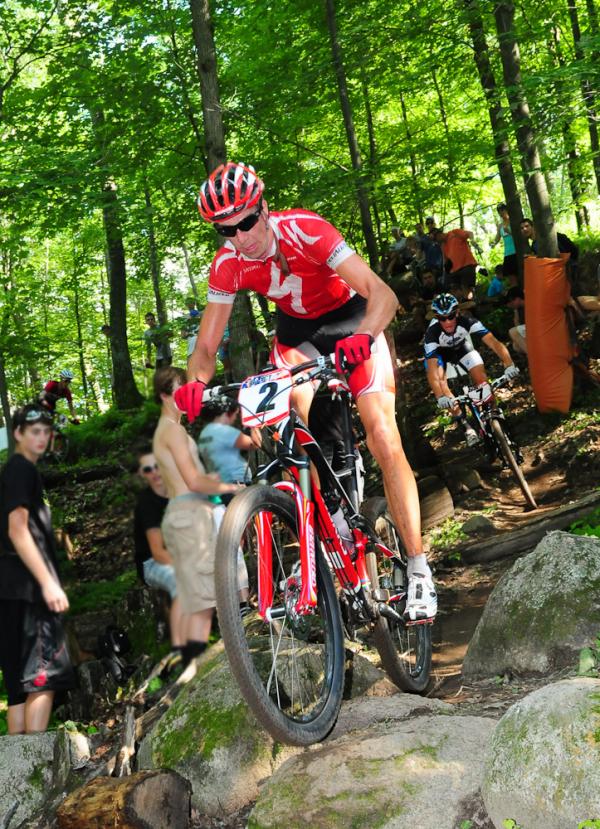
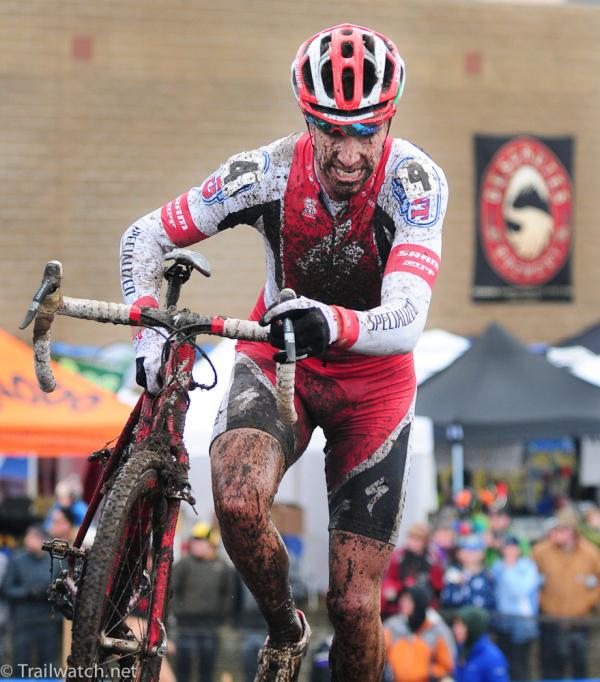
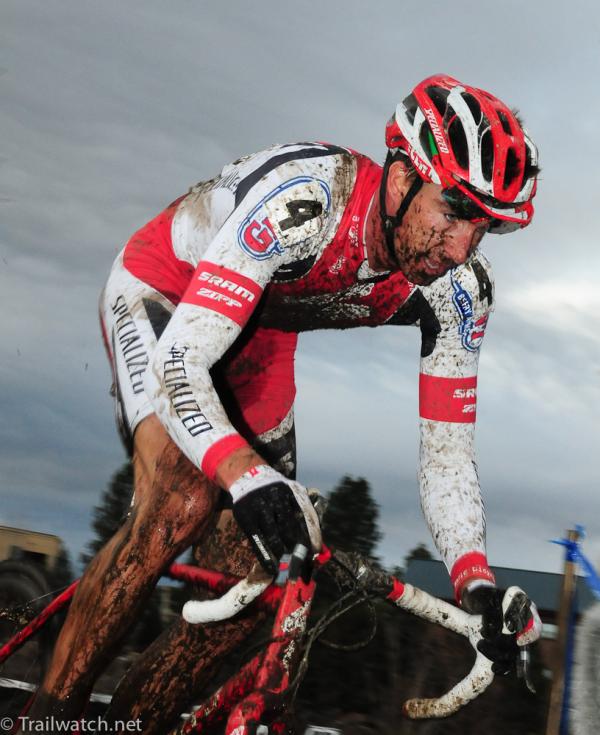
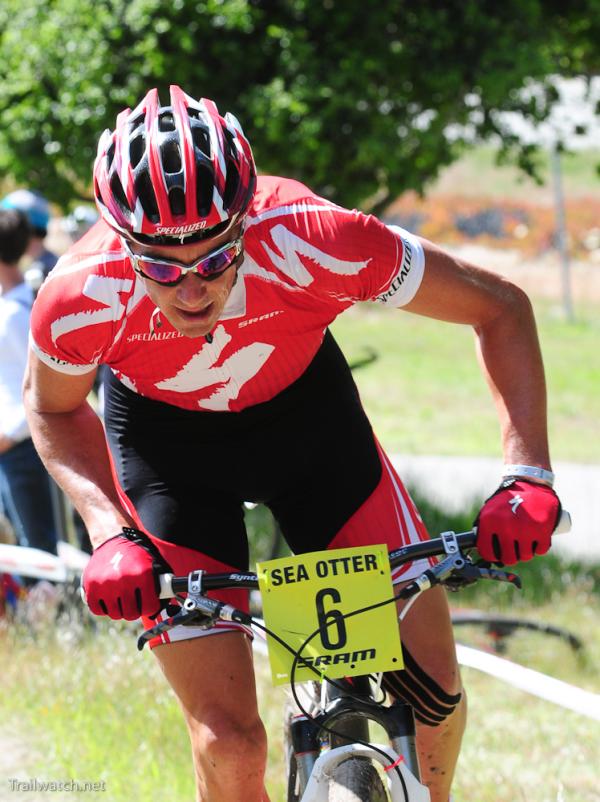
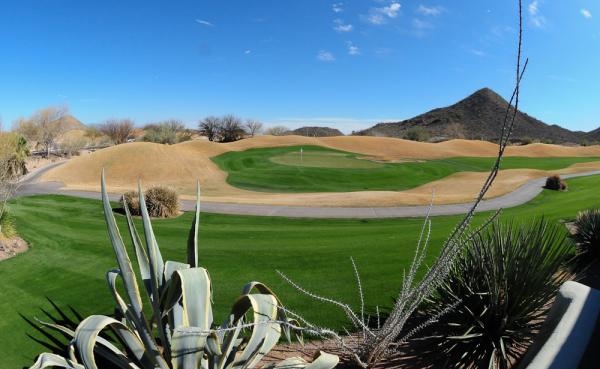
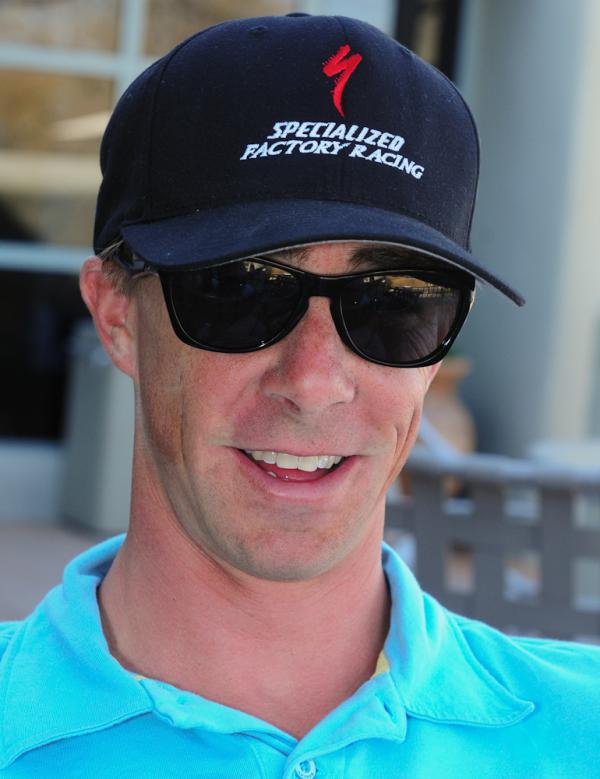
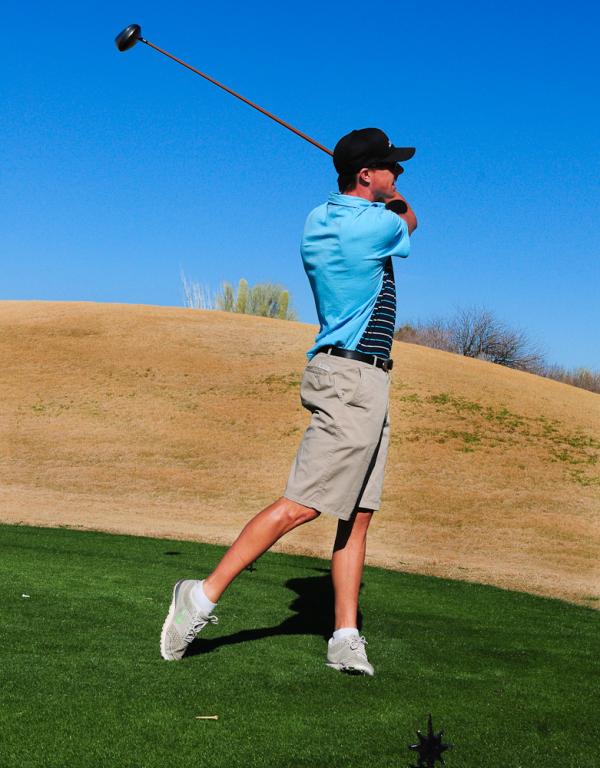
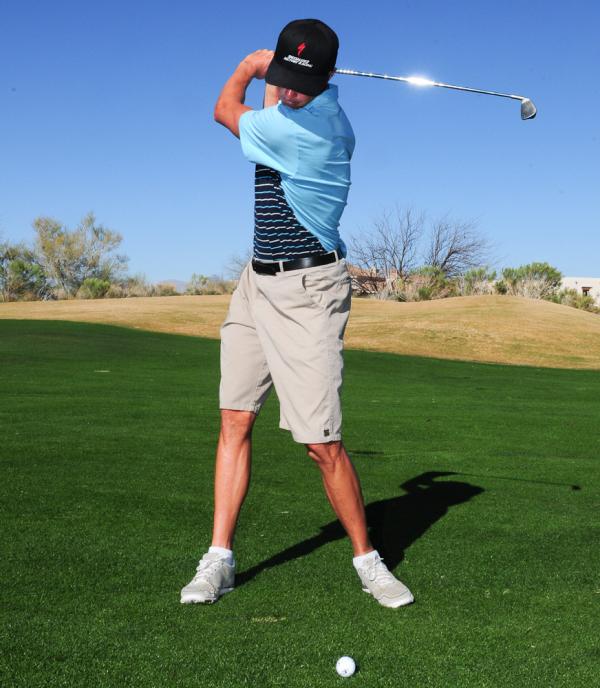
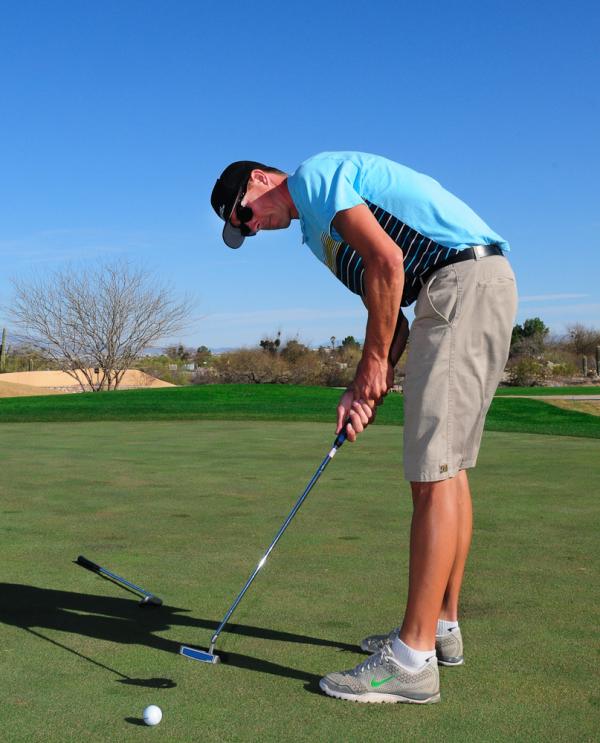
At the age of 35, Todd Wells (Specialized) is still improving. Last July, he won the US mountain bike national championships in cross country and short track. He followed that up by winning the US cyclo-cross national championships in Bend, Oregon, in December. Having spent much of his career racing alone for the GT Bicycle program, Wells seems to have benefitted by signing with the Specialized Global Team, which has a roster packed with former world champions and World Cup winners.
Cyclingnews caught up with the two-time Olympian while working on his golf game near his new off-season home in Starr Pass, Tucson, Arizona. He talked about his off-season preparation, his career accomplishments and his plans for the upcoming season.
Cyclingnews: Does golf really count as cross training? What part of your body are you cross training?
Todd Wells: Man, this is a lot of mental focus and hand-eye coordination!
CN: How many years have you been coming to Tucson to train?
TW: I started coming down here in 1997 when I first moved to Durango. It's about an 8.5-hour drive so it's close. When I started coming down here, it was easy because I had some friends down here I could stay with. I wound up going to the University of Arizona, graduating from the U. of A. and now it's easy for Meg and I to put our dog Winston in the car and just cruise down. If the weather gets better in Durango, it's easy to go home.
CN: Everyone knows about the weather here in Tucson, but what is it about the city and terrain here that makes it desirable for a professional cyclist?
The latest race content, interviews, features, reviews and expert buying guides, direct to your inbox!
TW: Yes, the weather here is really good. It doesn't have the best road and mountain riding but it's good enough. There are a lot of good restaurants, and there's always somebody to ride with.
CN: One of the things the city has is that 10,000-ft. mountain. Do you make use of it?
TW: Yes, occasionally. Mount Lemmon goes from 2,500 ft up to 10,000 ft. It's a good road with a good shoulder so on any given day, you can see hundreds of cyclists out there training on that mountain. It's got a good little cookie cabin at the top and lots of mountain bike trails that work off of Mount Lemmon.
CN: What is your favorite trail?
TW: Bug Springs Trail off Mount Lemmon that starts around mile marker 11 and dumps you out around mile seven. Then you can continue on the Prison Camp trail and take it all the way down to the fee station at mile five. There's a little bit of hike-a-bike and for Tucson there's a little bit of steep stuff. It's also a little different than most of the terrain due to the elevation. There are some pine trees and the dirt up there, and it's like dirt and not just crushed rocks. So, you can get in some good mountain biking plus you can get some steady riding on the road on the way up.
CN: What's your favorite road ride?
TW: There's a lot of great riding out here, and this time of year I cover most of the roads here in Tucson. I would say my favorite area is west of town in Saguaro National Monument, Gates Pass, and Kinney Road. It's not great for groups because there is not much of a shoulder, but it's very twisty. It goes through the Saguaro forests and it's just beautiful out there.
CN: Your off-season training usually begins after your Mexican vacation. What is the date that you usually arrive here?
TW: It varies, but we usually get here four to six weeks after cyclo-cross nationals. Being that I do race mountain bikes and cyclo-cross, there are about 2.5 months that I am not racing, I try to condense that time and get a good break and then come here and get some good training in.
CN: How many hours are you training while you are here?
TW: It starts off pretty normal with about 16 hours per week and then I ramp it up. Last week I did 35 hours plus some gym work and a little running here and there. So, it's quite a bit.
CN: The Bonelli Park US Pro XCT is a few days away. When did you start adding intensity?
TW: I do this big base building phase. I'm not sure it's the best training but I've done it ever since I started racing. I know how I come out of it. It seems to work and give me pretty good fitness for the whole season. Now I'll start doing a little more tempo and threshold stuff. Then probably right before Sea Otter I'll start doing some really high intensity stuff. So for Bonelli I've been training a lot so I might not see that great a result there, but I'm hoping to build all the way up to Sea Otter and the first World Cup.
CN: It seems that you are always competitive in those first races at Bonelli, Fontana, and Sea Otter, and sometimes you win. What do you attribute that speed to since you'll only have had a couple weeks of intensive riding?
TW: A lot of guys who just race mountain bikes are done racing in September so they've had six months off. But with me having raced until the middle of December, I've had a lot of intensity until then. And now with these big miles that seems to give me good general fitness. I lose some weight during that period and get pretty lean. I don't have that much high end fitness but US domestic racing is more of a threshold type of event. It's not like a World Cup event where you have to go VO2 max or you're going to get passed by a bunch of guys. You can kind of ease into these US races. There are hard surges but it you can't follow those surges and just ride your own pace and you will come back to them. You are not going to have to fight off 10 guys between you and the rider you were just with.
CN: This year your teammates are probably not coming to Sea Otter. Is it going to be Todd against the world?
TW: Yeah, it's a bummer that the global team with Christoph (Sauser), Burry (Stander), and Lene (Byberg) not coming over because the first World Cup is in South Africa the following weekend. We will have a strong team with Max Plaxton and Lea Davison being on the domestic squad. Plaxton is always a threat to win any Pro XCT and he's great to have as a teammate. But it is a bummer not to have Christoph and Burry. Those guys are such great riders I feel like they push me to a new level. I got to ride with Burry and Christoph quite a bit at Sea Otter last year. Burry and I were off with [Geoff] Kabush. We attacked him non-stop but he was right there until the finish. I see Kabush as being a favorite for Sea Otter this year as well.
CN: You have a different schedule than most mountain bikers. You compete domestically but your emphasis has to be on the World Cups. Then for cyclo-cross you race a domestic schedule but then skip the World Cups and world championships. At what points during the year are you trying to peak, and how many times a year can you do that?
TW: I think I am figuring things out, and it depends on the year. I usually focus on the mountain bike. I try to be good for nationals and the world championships. I happen to have good form for the beginning of the season without really trying. It just seems to work out that way with my schedule. I try to really hit the mountain bike season and then have one last hurrah for cyclo-cross nationals. By the end of a long mountain bike season, I take a beak and do some building. The other guys are focusing more on 'cross now so I feel that to be competitive at the very top level I can only do that once.
CN: Will you be leaving your new home here in Starr Pass soon?
TW: We have been here since just after the new year. It's been great. We've have some good weather and training here in Tucson. I head back to Durango just after Bonelli for three weeks to get in some altitude training for the Pan American Championships in Bogata. I'll come back down here for a couple weeks before Sea Otter to get in some heat training before South Africa then it's on the road and back in Durango full time.
CN: Would you have thought, even though in your wildest dreams, that you were going to have your best results at age 34? How can you top your results from last year?
TW: That's the problem when you have a really good year then you have to try to top it the next year. I'm not really sure why I'm better with age. I had a few years that I took off in the middle of my career where I went back to school and didn't ride my bike. That gave me an appreciation for being a professional cyclist and doing what you really love.
Getting on the Specialized team and having more race support and a more race focused company, and being teammates with Christoph Sauser and Burry Stander elevates me to the next level when I am riding with them. This year we also have Jaroslav Kulhavy who won the World Cup finals last year and won a silver medal at the world championships. In the past, I feel like I was always in the race and happy to be in the lead group but when the race really went down I felt like I had already achieved my goal of being up there. I feel like I didn’t want to win that badly. Now being around these guys, they give me the desire to win.
CN: If you could pick one thing missing from your resume that you would like to see there before you retire, what would it be?
TW: I would love to win a World Cup or a world championship. It's not a likely goal but it's something I strive for and try to be the best that I can be. Every time we line up it's a possibility that everything will come together. As an athlete you always believe that you can win the race and that's what you try to do.
CN: Would you take that World Cup win over making the Olympic team again?
TW: Oh definitely.
CN: Would you take a world championship podium over making the Olympic team again?
TW: Sure, but I feel that the two go hand in hand. Our Olympic selection is based off the world championships and World Cup. Say I did get on a world championship podium this year, that is an automatic qualifier to get on the actual Olympic team. It would be great to make the Olympic team but I'm not looking at these races like I have to beat this guy or that guy. I pick the races that I want to be up there in and racing the best guys in the world. If I do well in these races, the other stuff just falls into place.
CN: If you had to target one World Cup race, would it be Windham because it is on US soil?
TW: You know Windham is a good one also because it is a week before nationals, an important race to myself and also to Specialized. I'm always pretty good on that course, but I feel like an Offenburg or Dalby Forest suits me because Windham now has one of the longest sustained climbs we have on the World Cup now. It depends because if you're good on that day. The course really doesn’t matter.
CN: If you look back, what do you feel is the biggest accomplishment of your career?
TW: It's hard to say. When I was the most excited ever was when I won the collegiate mountain bike championships back in 1996. I had never won a big race before. That kind of launched my semi-pro and pro career. I got on a team after that.
CN: What comes after mountain biking? You must be thinking about it.
TW: I've always known up until now exactly what I wanted to do. I wanted to be a bike racer. I did that. Then I wanted to go back to school and get a real job. I did that. Then I wanted to be a bike racer again. I did that. So, I am still trying to figure out what I want to do after this. It takes so much focus when you are racing. You almost block everything else out.
CN: Do you have a date in mind when you are going to hang it up? Or are you going to keep going as long as you are winning races?
TW: Yes, just keep going as long as I am doing well and motivated to race. My deal with Specialized is up this year. It has been an awesome three years, and I hope to continue on with them in the future.
CN: What exactly is your schedule like for this year?
TW: I start off with the Bonelli Park race this weekend. A couple weeks later there is Fontana, then the Pan Am Championships in Bogata, Columbia. Then there is Sea Otter followed immediately by the World Cup in South Africa. From there it is domestic, international, domestic, international - a lot of back and forth.
CN: There is a big break after the race in Pietermaritzburg in South Africa. Will you come home or stay in Europe to train?
TW: I'll come home. It's almost four weeks between Pietermaritzburg and the Offenburg World Cup. I may do the Mellow Johnny's race, the Whiskey 50 race, or take a break and reassess the season after that first World Cup.
CN: Then do you head to Dalby Forest and Offenburg? What do you think of the new Dalby Forest course?
TW: It's a pretty quick trip to Dalby Forest, Offenburg, then right back home. I personally like the Dalby course. It's pretty flat but it has two steep climbs, and it's also got a few technical sections. It's a fast, flow-y course. It's a lot of fun.
CN: The season ends with the steep climbs at Val di Sole, Italy and Champery, Switzerland. How is that going to affect your results?
TW: The steep climbs aren't usually that great for me when they are really long. The Champery climb is only two or three minutes, so it depends on how I'm riding at that time of the year. This past year I had my best World Cup there, finishing 12th.
CN: How cool is it to have back-to-back races in North America now?
TW: Having the two races at Mont-Sainte-Anne and Windham is awesome. For the American riders not to have to travel too far is huge. It's nice to see the Euros deal with a bit of travel and jet lag. It's also an advantage to have the familiar language, the street signs, and the culture. It's pretty nice.
CN: What was the buzz from the racers after the Windham race about the course and the organization?
TW: I heard a lot of good things, not only from the US riders but the foreigners as well. We were pretty lucky that it was dry there, but they did a lot of work so that if it does rain the course will hold up. There are something like 30 bridges. It's incredible.
CN: What do you know about racing at Sun Valley where the US National Championships are being held this year.
TW: I've never been to Sun Valley but it's always cool to go to a new venue. I talked to Mark Gullickson a bit and he said there are a few options as far as the course goes. I am excited to get out there. I wish I had a chance to go out a little early and preview the course.
CN: You're known as a good altitude rider but once you start running around the world it somewhat negates that advantage. How are you going to get that back before the Sun Valley races?
TW: Exactly. This previous year we had a lot of time in the lead up to nationals, so I did some training at Purgatory at 9,000 ft. I could prepare properly before the race. This year, we have two races right before nationals at Mont-Sainte-Anne and Windham so it's going to be tough. I have an altitude tent so maybe I'll bring that with me to Windham. It's going to be a challenge for me but it's also going to be a challenge for everyone. Anyone who wants to be competitive at nationals is probably going to compete also at the World Cups. We'll all be in the same boat.
CN: Mountain biking wraps up a little late this year in that it goes past Labor Day. Does that give you a break before Cross Vegas and the rest of the cyclo-cross season?
TW: Usually I try to roll it right into Cross Vegas and then take a break afterwards. This year is also going to be different in that Cyclo-cross Nationals fall in January, almost a month later than this year. Also, next year the early World Cups are going to be the deciding factor in the Olympic Team selection. One of the key things is going to be figuring out where you can rest. We all do hard training and races but the key is to get your rest.
CN: What one race are you most likely to key on this year?
TW: I like nationals because there are the two World Cups preceding it. It's a good time to try to have a peak in fitness. If you get it right for one of those three weekends it's good. Then after that, it's hard but I want to come back for the world championships.
CN: Is the pressure on or off about winning both the cross country championship and short track championship? If you get just one of those, are you going to be happy?
TW: Now it's not so much pressure. It's once you get it, you want to get it again. So it's more of a desire thing than a pressure thing. I would definitely love to get both of those jerseys again.
CN: Who do you think is going to be the crop of young riders that are successful over the next 10 years?
TW: It's hard to say. We have a group of strong young riders in Sam Schultz, Russell Finsterwall, and a bunch of guys right on the cusp of breaking through. It's different from when JHK and I were coming up. We had guys to look up to like John Tomac, Ned Overend, and Thomas Frischknecht. Those guys were really the pinnacles of the sport. They were winning international races and making a living. They actually retired once they quit cycling. Now I feel like most of the guys, but not all of them, switch to the road because that's where the money is. It funnels away a lot of the talent who would like to race mountain bikes but do not have the opportunity to make any money doing it.
CN: Will you be going back to the Leadville 100? What was your recovery time last year?
TW: Leadville is up in the air for me. I am going to see how these first World Cups go and then make a decision based on that. Leadville is one of the races that gets the most media coverage in the US so it's important to the sponsors. It's a bummer that it falls at the same time as a World Cup this year. I feel like I recovered from it pretty quickly. I do a lot of long training in the winter down here in Tucson, and because I really enjoy riding my bike I do a lot of long rides.
Stay tuned to Cyclingnews to follow Todd Wells' domestic and international racing this year. When we left him on the golf course, he was intently working on getting his handicap back down to eight. It seems that he is just as competitive on the links as he is on the mountain bike.
